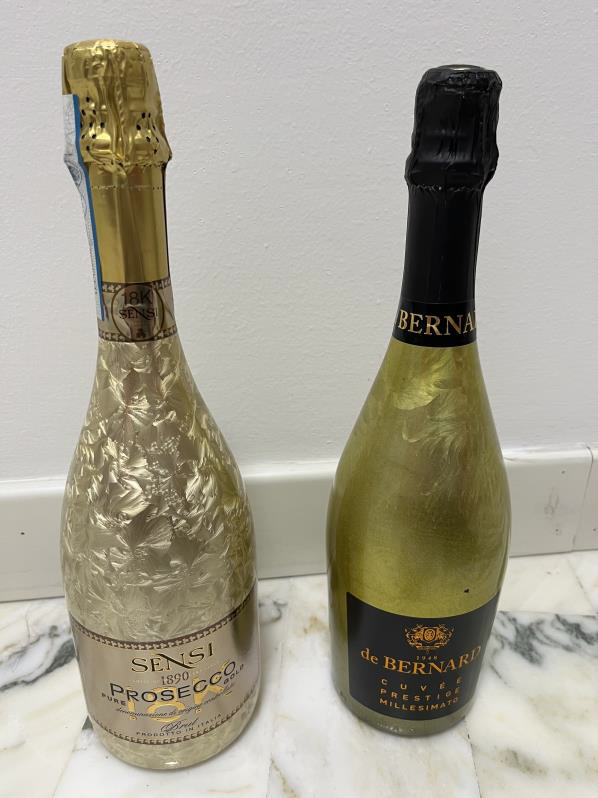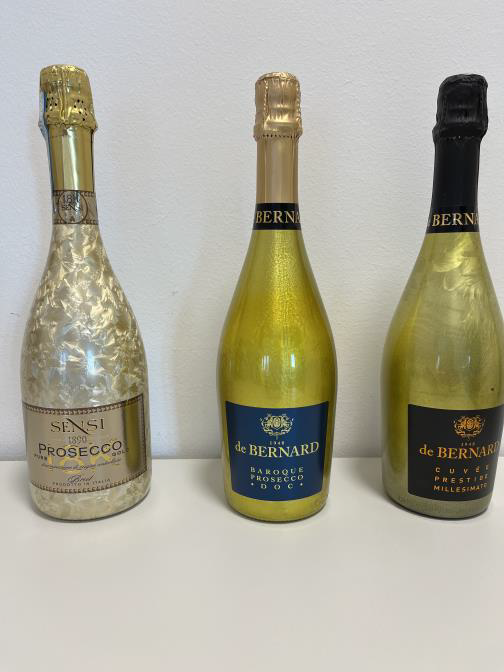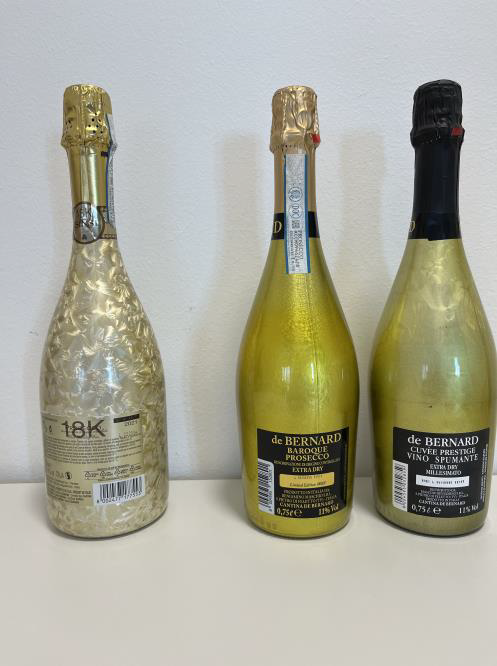
27 luglio 2023
The wine brand known as "Prosecco Sensi" presents a distinct visual aesthetic with its metallised marbled or "ice" texture, setting it apart from the reflective and glossy appearance of the "Maschio Beniamino" bottles
A winery company filed an interim measure application against the violation of its European trademarks, but the court ruled it inadmissible. The company then appealed to the Court of Venice, arguing that the opposing party's trademarks posed a risk of confusion or similarity with their own. The case also involved suspending judicial proceedings pending the resolution of the nullity action for the proposed brand to the EUIPO, which is addressed in Article 128, paragraphs 4 and 132 of the EU Trademark Regulations.
The winery company Sensi Vigne e Vini s.r.l. filed a cautionary motion according to Articles 129, 131, and 126 of the Industrial Property Code, Articles 2598 of the Civil Code, and Article 700 of the Civil Procedure Code, seeking temporary protection for four European trademarks. One of these trademarks is a figurative mark registered on November 23, 2018, based on an application filed on July 9, 2018, depicting a specific metallised marbled or gold leaf, ice crystal, or frozen "texture" in all possible weavings and colours, and three three-dimensional trademarks marks of sparkling wine bottles in silver, gold, and metallic pink.
The company brought a precautionary lawsuit against Maschio Beniamino s.r.l., alleging that they pursued counterfeiting activity through the promotion and commercialisation of "Baroque Prosecco D.O.C. Extra Dry" and "Baroque Rose" wine bottles on websites owned by the opposing party and third-party sellers (Sendero.Deals and Amazon). These bottles featured the "De Bernard" mark on gold and pink bottles, reproducing the ice, gold leaf, or marbled effect protected by Sensi's trademarks.
According to the petitioner, the contested Prosecco wine bottles bear the trademarks "De Bernard," "Baroque Gold," "Baroque Prosecco D.O.C.," and "Baroque Rose," owned by the opposing group.
The petitioner argues that these bottles interfere with the distinctive feature of the "particular metallised, marbled, or ice texture in all weavings or colours”, which they claim to hold a monopoly on, primarily due to the registration of the European figurative mark filed on July 9, 2018, commonly referred to as the "frozen style" mark:
 |
 |
 |
The opposing group's actions were considered unfair competition, especially concerning their slavish imitation of Sensi's "texture" mark and three-dimensional designs. Sensi had invested heavily in research and advertising, resulting in higher sales and notoriety for their products.
The petitioner sought injunctive relief, seizure of products, promotional materials, accounting records, and relevant contractual and banking documents related to the disputed marks to protect their trademarks.
However, due to pending nullity proceedings at the central level of the EUIPO for all four trademarks invoked in the precautionary lawsuit, the opposing party requested the suspension of the cautionary judgment until the resolution of the nullity proceedings for the figurative mark with the "frozen style" and the three- dimensional design before the EUIPO.
Following the jurisdictional declinatory order of the Florence Court dated November 21, 2022, the order of the Venice Court dated March 9, 2023, declared the precautionary motion filed by Sensi Vigne e Vini inadmissible. The court found that the injunctive relief had been sought only in the precautionary lawsuit and that the petitioner had expressed the intention to submit a claim in the main proceedings to establish the existence of the trademark and the occurrence of infringement. According to the court of first instance, the lack of anticipatory nature of the injunctive measure could be observed in this case, as the injunctive relief had not subsequently been pursued in the main proceedings.
Sensi Vigne e Vini s.r.l. filed an appeal under Article 669-terdecies of the Italian Civil Procedure Code against the order mentioned before the Venice Court. However, the request was rejected by the deciding authority, which acknowledged that there was no risk of confusion or similarity between the disputed marks of the opposing party and those owned by the petitioner. The court found it uncontroversial that the relevant market is highly crowded and that numerous bottles of white wine and sparkling wine/champagne bottles with a mirrored metallic finish and varying degrees of lustre are available in the market. Protection should be granted based on the novelty and distinctiveness attributed to trademarks exhibiting slight deviations from prior marks. The court concluded that the marbled or "ice" metallised texture of the petitioner's trademark creates a noticeably different visual effect from the mirrored and shiny bottles of the opposing party's "Baroque Gold," "Baroque Prosecco DOC," and "Baroque Rosé" bottles. […]
To read the full text of the article, please refer to the version of the article written in Italian "Prosecco Sensi" vs vini "Maschio Beniamino": la trama metallizzata marezzata o “ice” del primo produce un effetto visivo differente dalle bottiglie specchiate e lucenti del secondo.

















